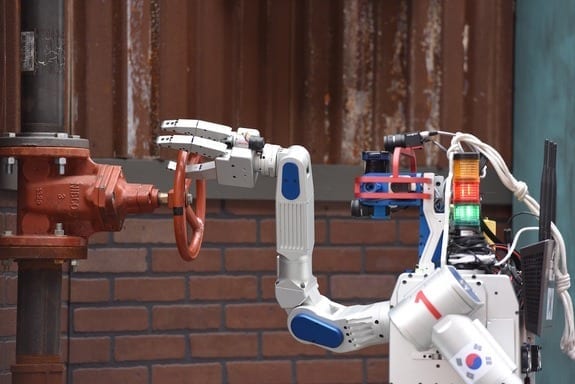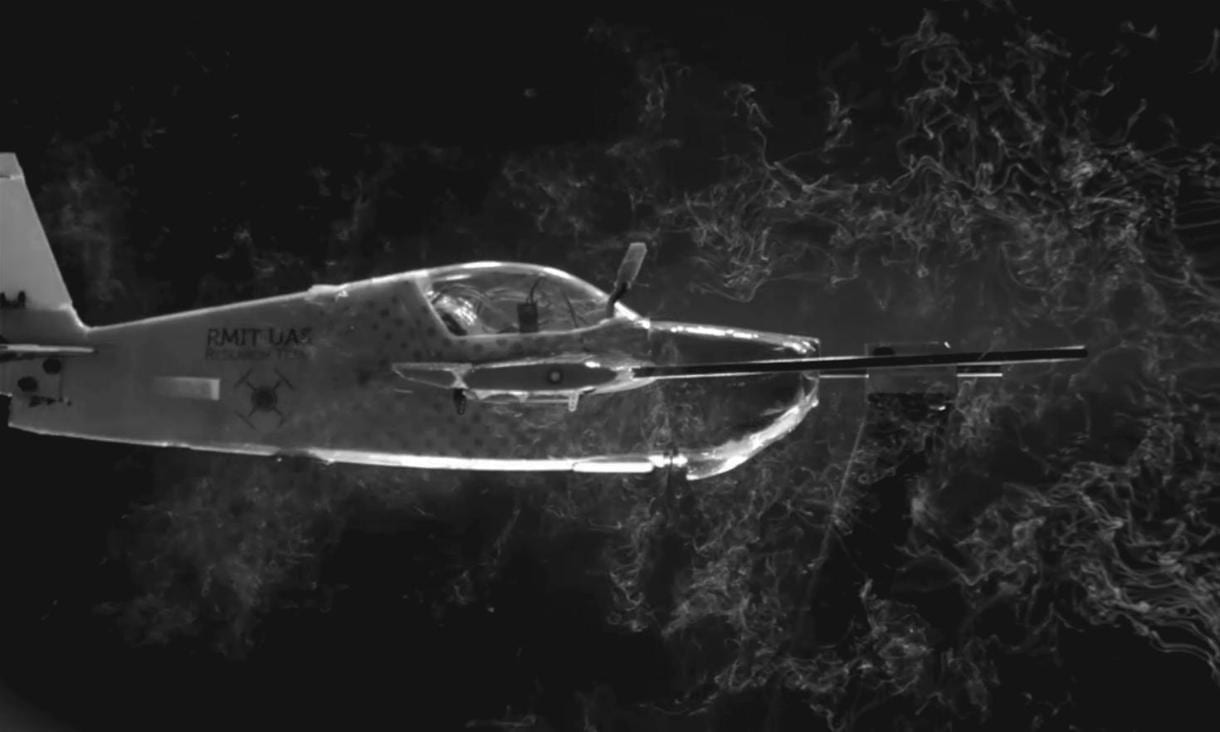
A team of roboticists from the
Korea Advanced Institute of Science and Technology
claimed a $2 million prize on Saturday that was offered by a Pentagon research agency for developing a mobile robot capable of operating in hazardous environments.
Twenty-five teams of university and corporate roboticists competed for the prize, which was first given in 2012 by the Defense Advanced Research Projects Agency. The robots were graded on their ability to complete eight tasks, including driving a vehicle, opening a door, operating a portable drill, turning a valve and climbing stairs, all in the space of an hour.
The Korean victory is a validation of the work of JunHo Oh, the designer of the Hubo family of humanoid robots that he has developed since 2002. The winning Hubo is a clever machine that can kneel and drive on wheels in addition to walking.
The second-place winner, the Institute of Human and Machine Cognition in Pensacola, Fla., received $1 million, and the third-place winner, Tartan Rescue, from the National Robotics Engineering Center at Carnegie Mellon University in Pittsburgh, Pa., received $500,000.
Despite clear progress since a trial event in Florida in 2013, the robots remain decades away from the science-fiction feats seen in movies like “Ex Machina” and “Chappie.”
Instead, the robots seemed more like an array of electronic and hydraulic contraptions that, in some cases, walked in a lumbering fashion on two or four legs and, in other cases, rolled on tracks or wheels. Some of the machines weighed more than 400 pounds. They were equipped with sensors and cameras to permit remote control.
On Friday, the first day of the Robotics Challenge, it took until 2:30 in the afternoon for the first robot to successfully complete the course, seven and a half hours after the competition began. Frequently, the machines would stand motionless for minutes at a time while they waited for wireless connections with their controllers to improve. Darpa degraded the wireless links on purpose to create the uneven communications that would simulate a crisis situation.
Reporters were once again left grasping for appropriate metaphors to describe the slow-motion calisthenics performed by the menagerie of battery-powered machines. Most agreed that “like watching grass grow” was no longer the best description, and Gill Pratt, the Darpa official in charge of the competition, suggested that it had risen to the level of “watching a golf match.”
Read more: Korean Robot Makers Walk Off With $2 Million Prize
The Latest on: Mobile robot
[google_news title=”” keyword=”Mobile robot” num_posts=”10″ blurb_length=”0″ show_thumb=”left”]
via Google News
The Latest on: Mobile robot
- TU Munich: Robots and drones to monitor and clean the environmenton April 27, 2024 at 11:17 am
Researchers at the Technical University of Munich have set themselves the goal of cleaning the environment with robots and drones. This is done remotely.
- Astribot S1 AI Humanoid robot unveiled demonstrating its agility, dexterity and accuracyon April 27, 2024 at 12:55 am
This week the Astribot S1 humanoid robot was unveiled in Shenzhen, China, marking another significant leap forward in autonomous robotics ...
- What's The 'Wow Cool Robot' Meme? The 'Mobile Suit Gundam' Satire Drawing Explainedon April 26, 2024 at 6:54 am
The Gundam anime series is not just about flashy and cool robot fights. Here's why this exploitable meme became a viral satire about people who miss some subtext in certain pieces of media.
- SUPCON opens new innovation center and launches Navigator α humanoid roboton April 26, 2024 at 5:30 am
SUPCON has debuted its new humanoid robot for R&D and industrial use at the new Zhejiang Humanoid Robot Innovation Center.
- Europe taps deep learning to make industrial robots safer colleagueson April 26, 2024 at 1:07 am
European researchers have launched the RoboSAPIENS project to make adaptive industrial robots more efficient and safer to work with humans.
- Best Evil Robot You Can Buy: Robosen's Megatron Auto-Transforms via Voice Commandson April 25, 2024 at 9:17 am
The iconic Transformers villain comes to life in a self-converting robot that turns into a tank. It's a killer toy.
- This terrifying flame-throwing robot dog can be yours for under $10kon April 24, 2024 at 8:58 am
Is it a bird? Is it a plane? No, it’s a jet of fire projected towards you by a flame-throwing… Continue reading This terrifying flame-throwing robot dog can be yours for under $10k The post This ...
- Key solutions for Autonomous Mobile Robots (AMRs) from onsemion April 22, 2024 at 4:59 pm
sub-systems that allow the robot to move, see and operate safely with minimal human interaction. onsemi minimizes this complexity with reliable intelligent power and sensing solutions that provide the ...
- Top 6 Humanoid Robot Companies To Consider As A New Trend Potentially Takes Offon April 22, 2024 at 8:37 am
Discover the booming global market for humanoid robots set to reach $38 billion by 2035. Click for a full review of current humanoid robotics firm developments.
- The 6 best robot lawn mowers in 2024 are here to make your Roomba jealouson April 18, 2024 at 3:46 pm
Hate mowing your lawn? Well now you can let a robot do it for you. Check out these latest robotic lawn mowers.
via Bing News










